Protecting Your Privacy as a Canadian Business Owner
As a business owner in Canada, privacy is an important consideration that deserves attention. With increased transparency measures being implemented across the country, it's crucial to understand how your personal and business information may be displayed publicly, and what steps you can take to safeguard your privacy.
- Jump to how to Protect Your Residential Address as a Business Owner.
Ribbon offers a downtown Toronto virtual address that can be used as a business address and an "Address for Service" to shield the residential address of officers, directors and shareholders.
Recent Changes and Increased Transparency
Canada has been moving towards greater transparency in the private sector, particularly when it comes to identifying the individuals with significant control (ISC) over corporations. Since January 22, 2024, corporations created under the Canada Business Corporations Act (CBCA) are required to file information on their ISCs with Corporations Canada, and some of this information will be made available to the public.
Additionally, most provinces now require their own versions of a register of individuals with significant control, reflecting a broader push for transparency. This move aims to help law enforcement agencies expose activities like money laundering and tax evasion, which are growing global concerns.
While increased transparency can serve important purposes, it also raises privacy concerns for business owners and individuals associated with corporations. As more personal information becomes publicly accessible, there is a heightened risk of misuse or exploitation by bad actors.
What Business Information is Publicly Available?
The information available on business registries can vary between federal and provincial jurisdictions, as well as the type of business entity. Here's a breakdown of what you can expect:
Federal Business Registry
The federal business registry is easily searchable, and data is often aggregated on third-party websites, making it even more accessible. Some of the information that is publicly available and easily searchable includes:
- Business name
- Corporation number
- CRA business number
- Business address
- Shareholders' (with 25% or more ownership/control) names and addresses
- Directors' names and addresses
This level of accessibility raises concerns for business owners and individuals associated with federal corporations, as their personal information is readily available to anyone who searches for it.
Example of information available for a Federal Corporation
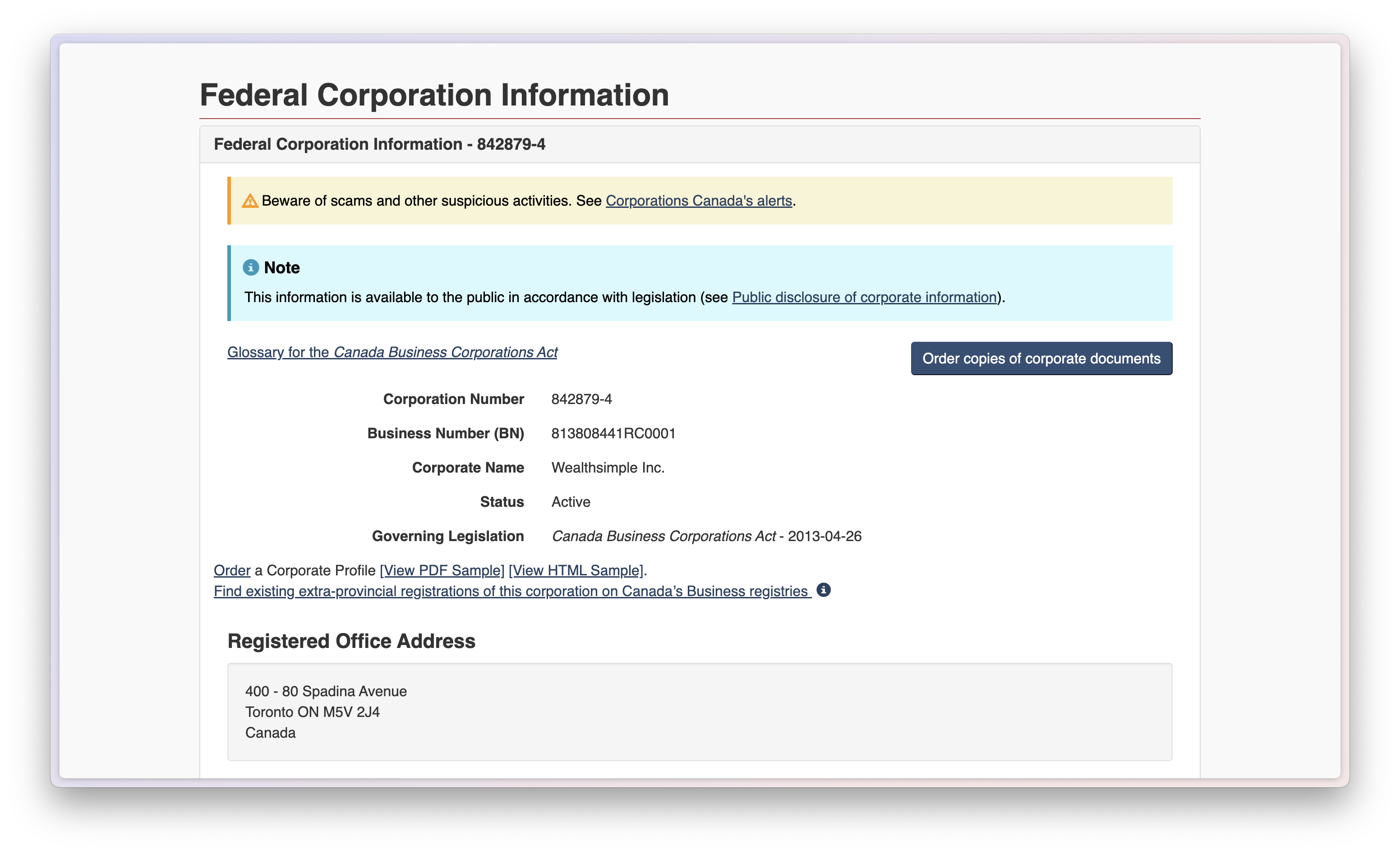
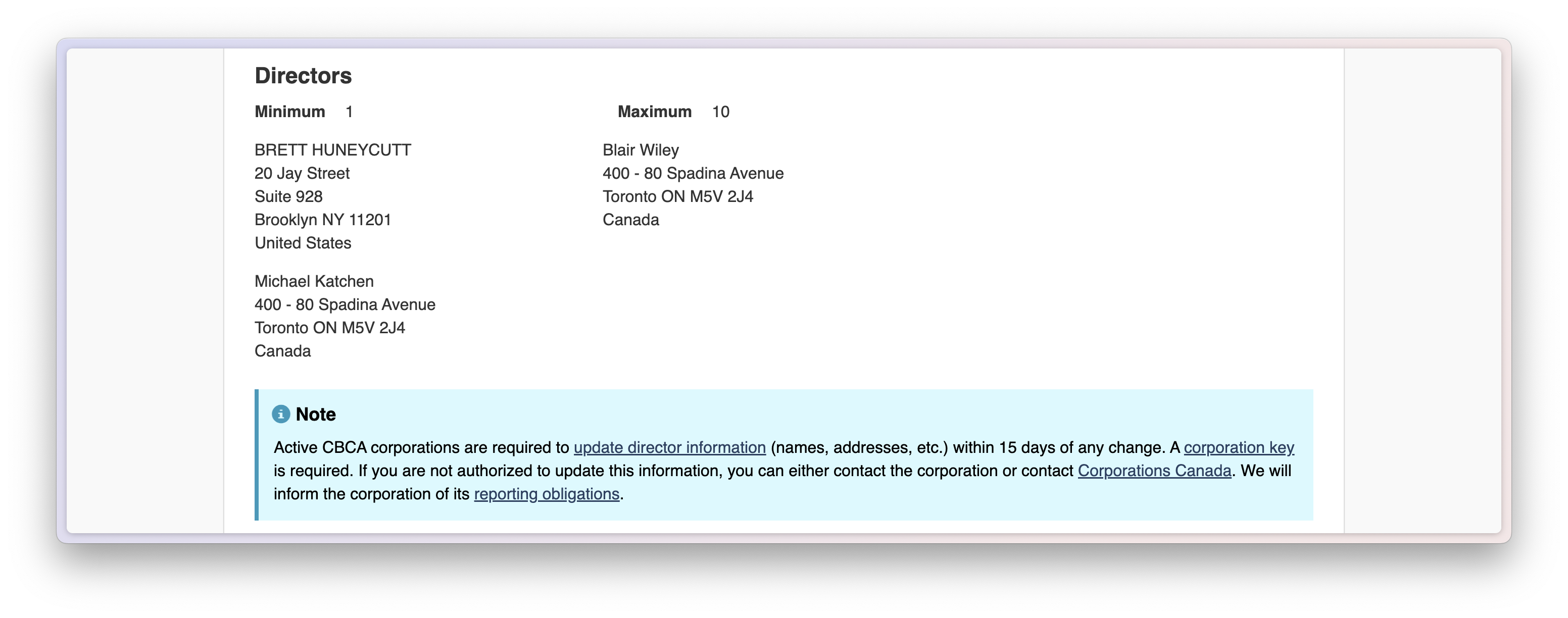
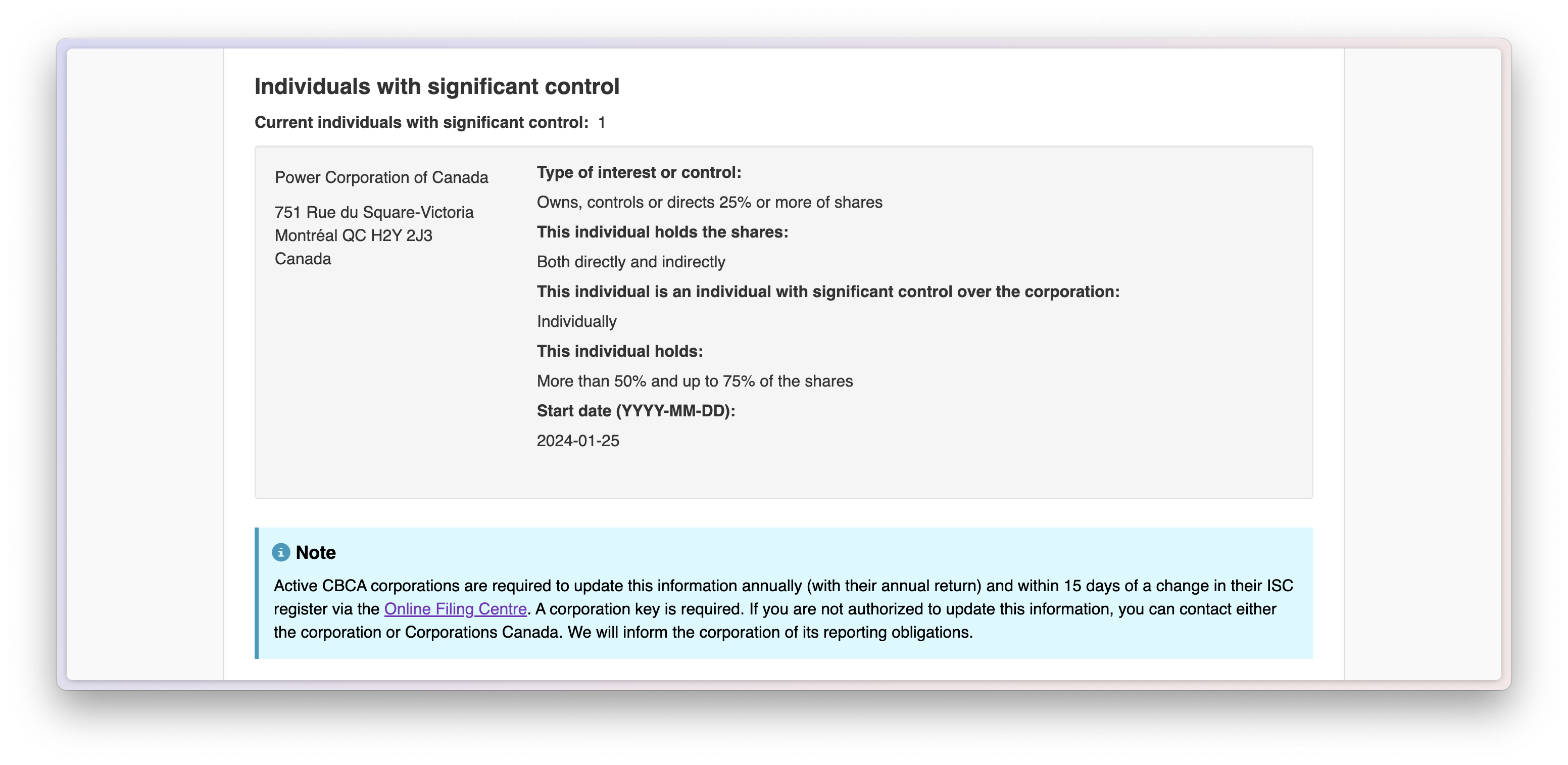
Ontario Business Registry
The Ontario business registry, on the other hand, has a paywall in place, making some information more difficult to access without paying a fee. However, certain details are still publicly available, including:
- Business name
- Corporation number
- Business address (detailed address behind a paywall)
- Directors' names and addresses (behind a paywall)
- Officers' names and addresses (behind a paywall)
While the paywall provides some level of protection, the fact that personal information is still accessible, even if at a cost, is a concern for many business owners in Ontario.
Example of information available for an Ontario Corporation openly searchable
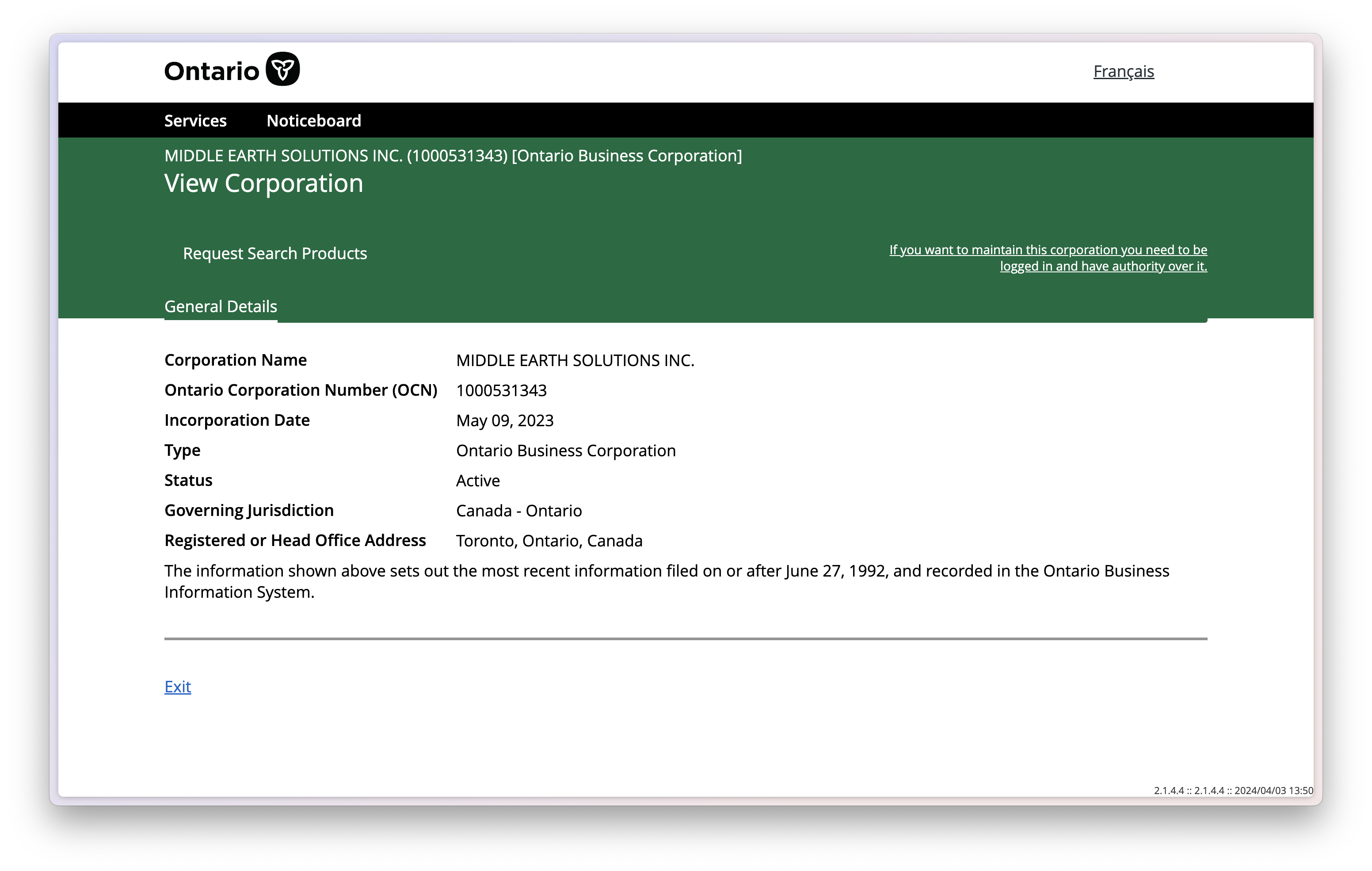
Example of information available for an Ontario Corporation behind paywall
The following corporate profile is behind a $8 paywall.
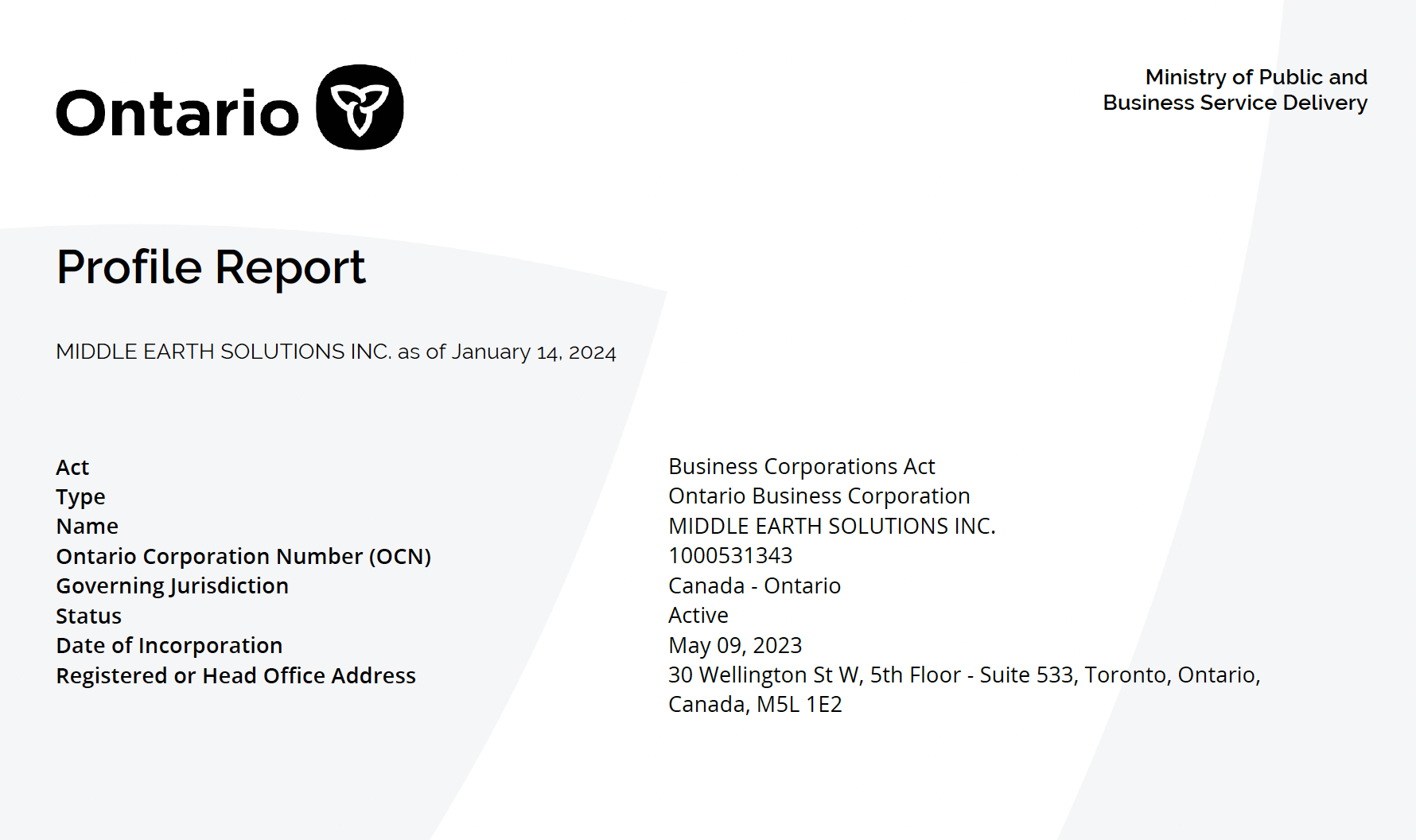
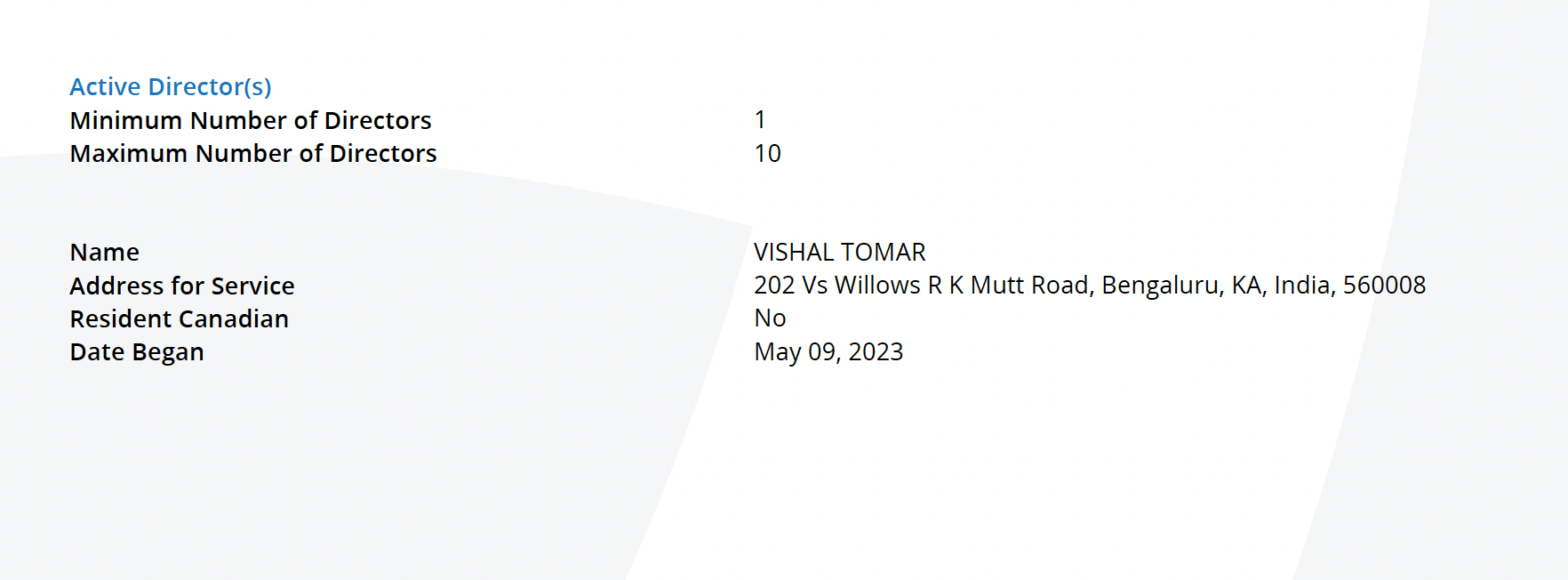

Sole Proprietorships in Ontario
For sole proprietorships in Ontario, the following information is available on the business registry:
- Business name
- Business identification number
- Business address (detailed address behind a paywall)
- Owner's name and address (detailed address behind a paywall)
As a sole proprietor, your personal information is directly tied to your business, making privacy protection even more critical.
Example of information available for an Ontario Sole-Proprietorship openly searchable
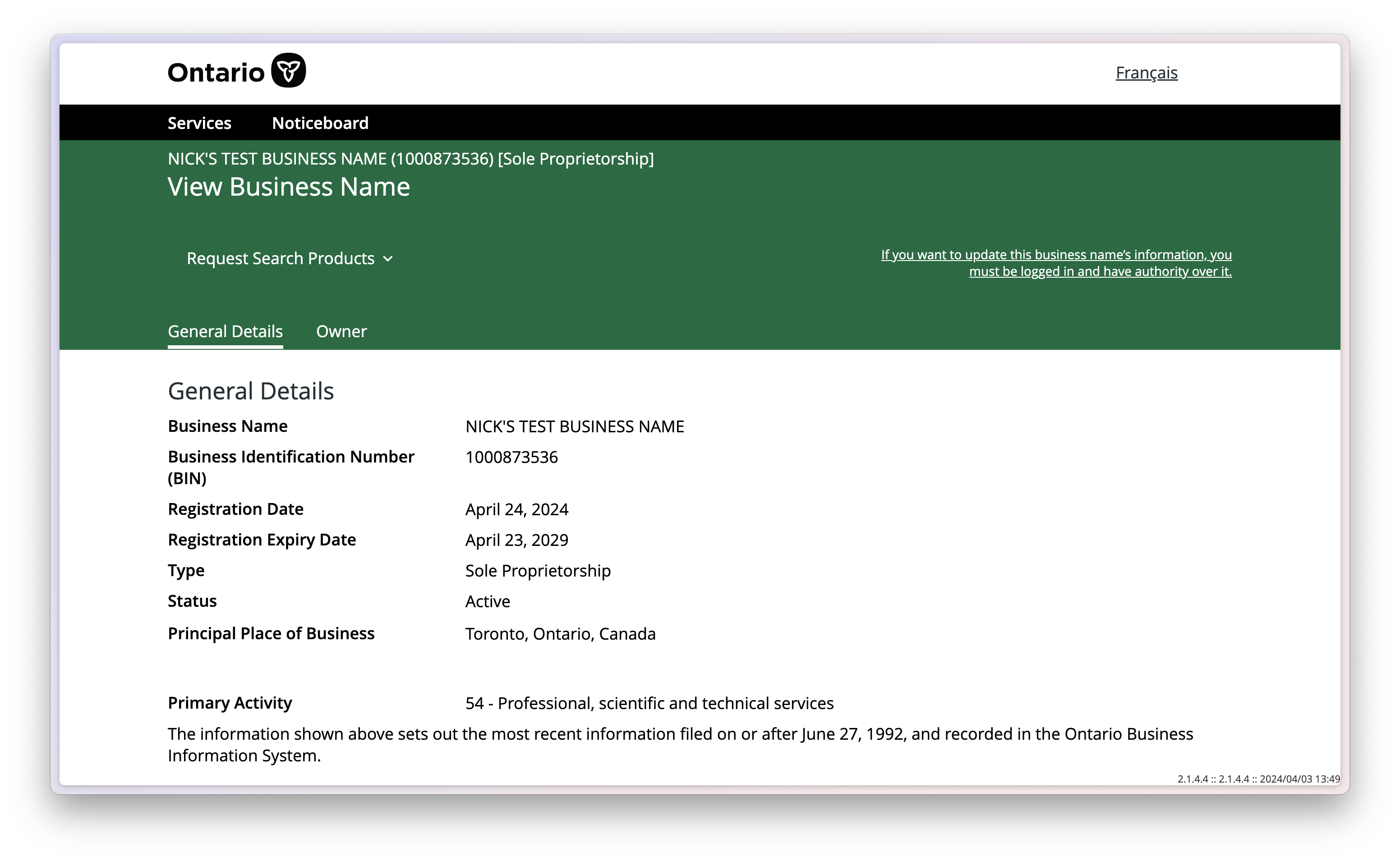
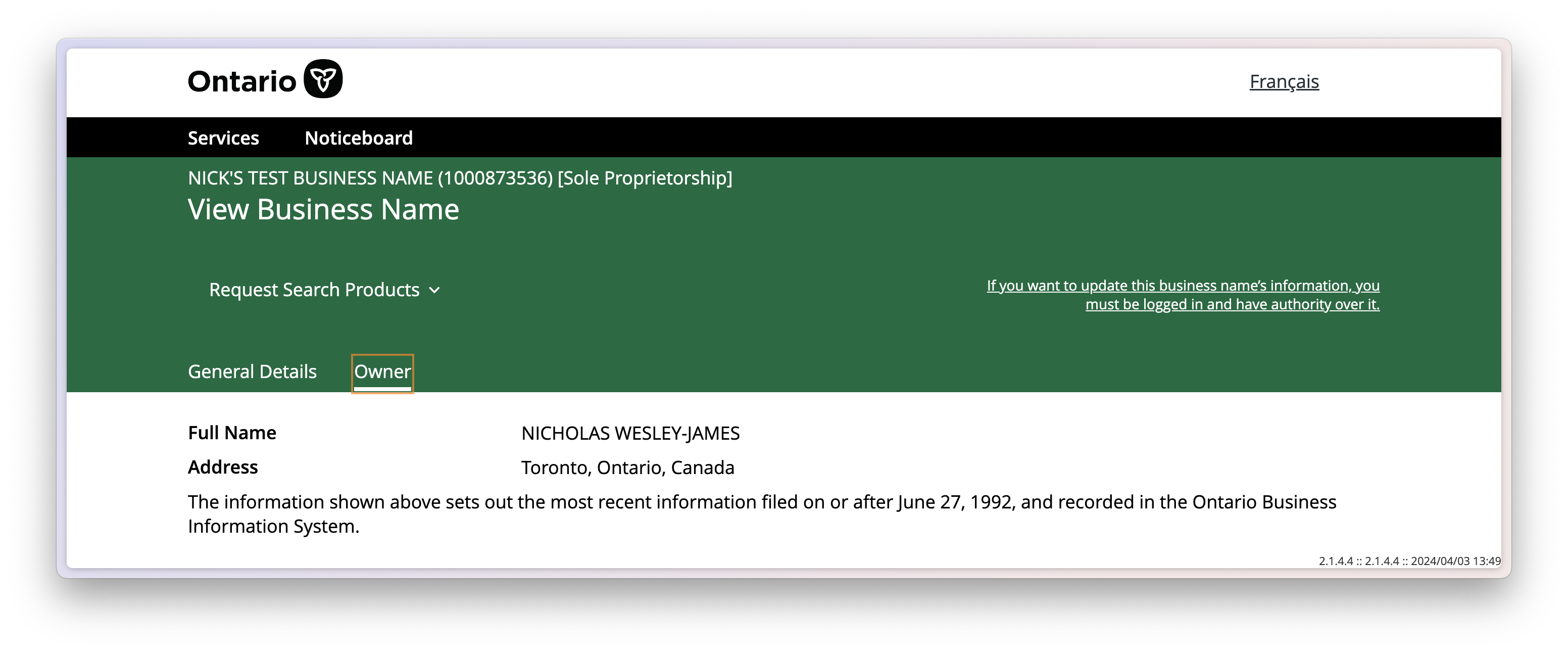
Example of information available for an Ontario Sole-Proprietorship behind paywall
The following information is behind a $8 paywall.
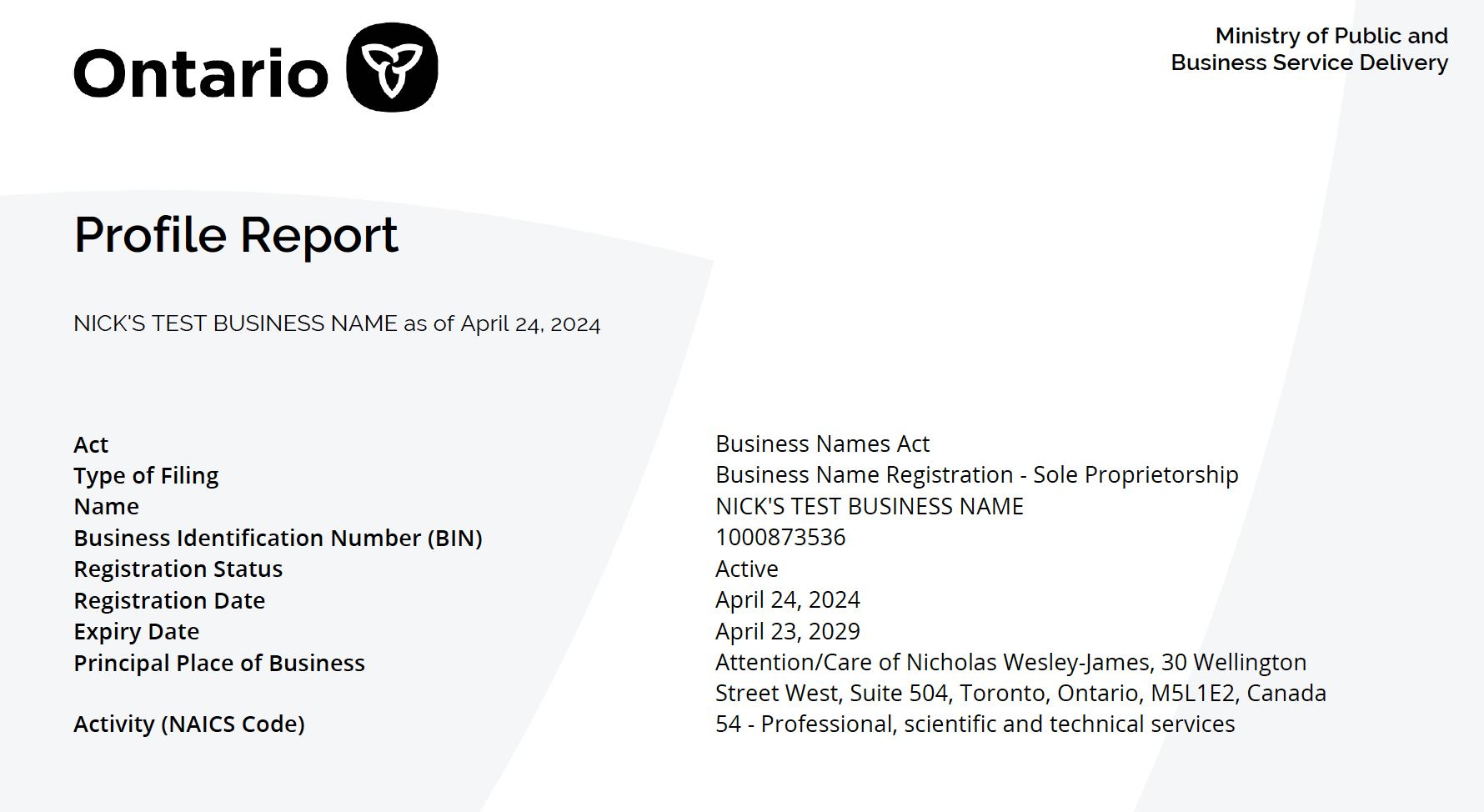

Extra-Provincial Registrations in Ontario
If your business is registered in another province but operates in Ontario, the following information will be available on the Ontario business registry:
- Business name
- Corporation number
- Business address (detailed address behind a paywall)
- Chief officer or manager's name and address (behind a paywall)
Even if your business is based elsewhere, personal information may still be accessible if you have operations in Ontario.
Example of information available for an Ontario Extra-Provincial Registration openly searchable
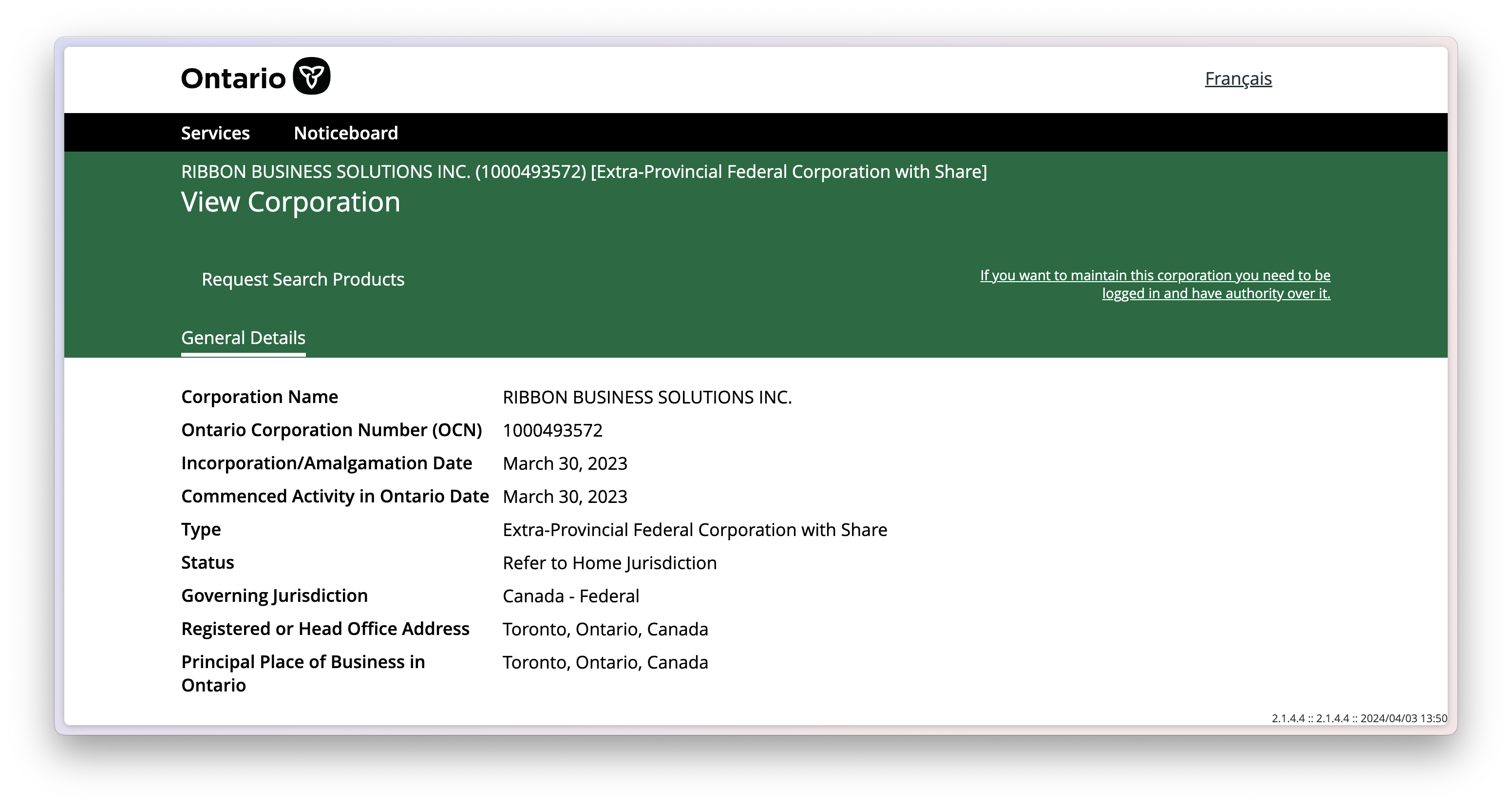
Example of information available for an Ontario Extra-Provincial Registration behind paywall
The following corporate profile is behind a $8 paywall.
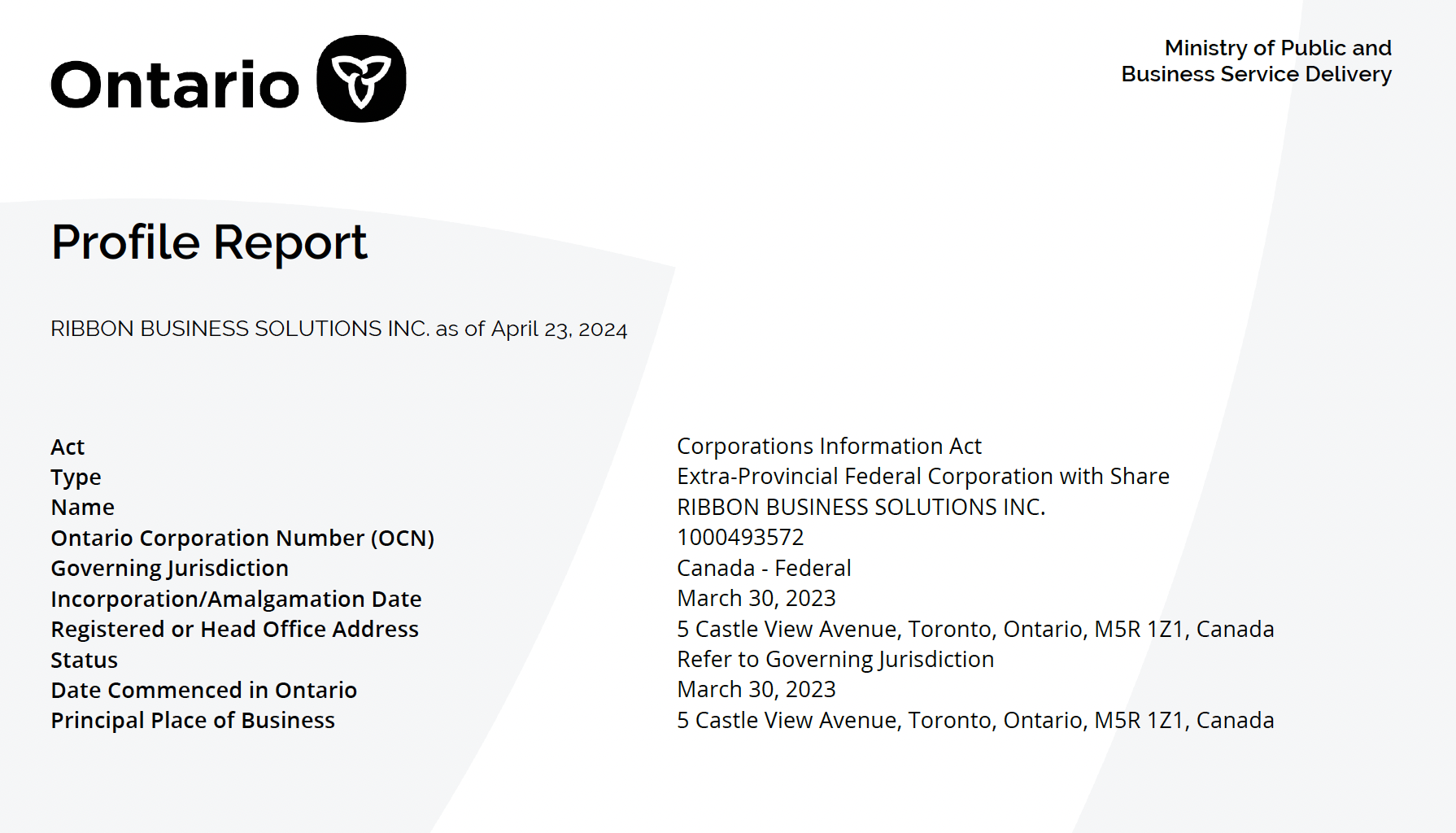
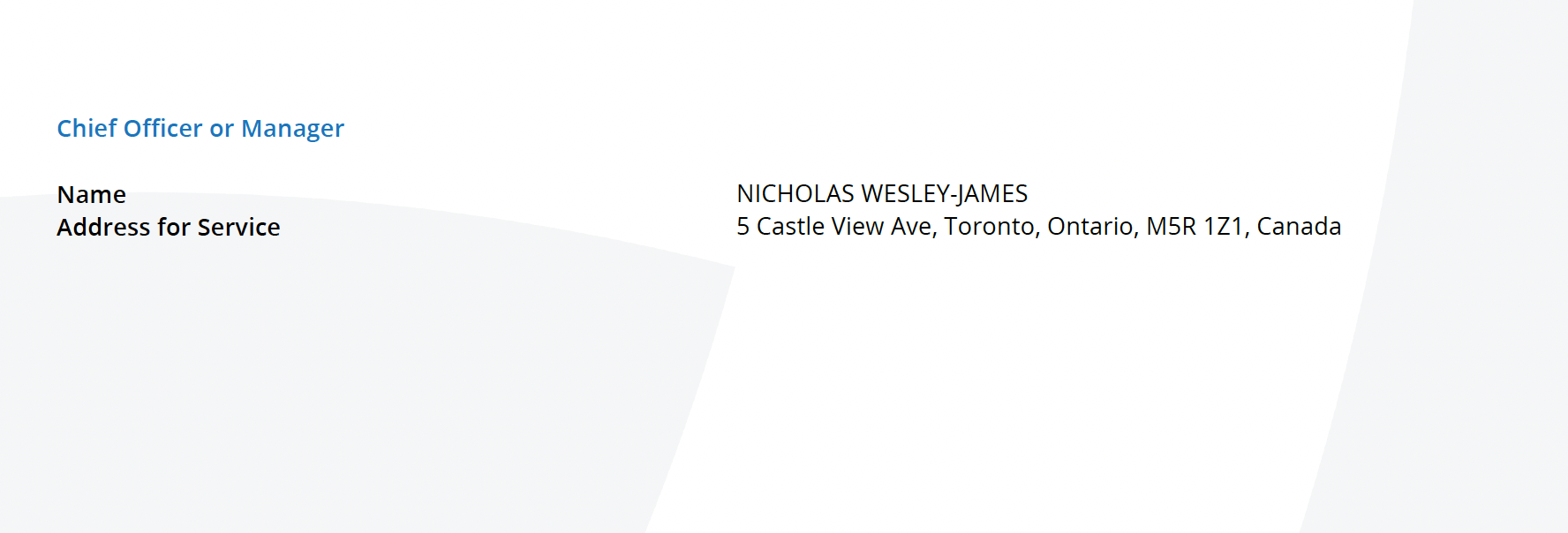
Privacy Comparison Table
| Federal Corporation | Ontario Corporation | Ontario Sole-Proprietorship | Ontario Extra-Provincial Registration | |
|---|---|---|---|---|
| Business Name | Public and easily searchable | Public, searchable if name or Ontario Corporation Number is known | Public, searchable if name or Business Identification Number is known | Public, searchable if name or Ontario Corporation Number is known |
| Corporation Number or Business Identification Number | Public and easily searchable | Public, searchable if name or Ontario Corporation Number is known | Public, difficult to search | Public, searchable if name or Ontario Corporation Number is known |
| CRA Business Number | Public and easily searchable | Not listed on Ontario Business Registry but listed on Canada's Business Registries | Not listed | N/A |
| Business Address | Public and easily searchable | Public, not searchable, behind a paywall | Public, not searchable, behind a paywall | Public, not searchable, behind a paywall |
| Significant Shareholders + Owners - Names and addresses | Public and easily searchable. | Not listed | Public, not searchable, behind a paywall | N/A |
| Directors - Names + addresses | Public and easily searchable | Public, not searchable, behind a paywall | N/A | N/A |
| Officers - Names + addresses | Not listed | Public, not searchable, behind a paywall | N/A | N/A |
| Chief Officer or Manager - Name + address | N/A | N/A | N/A | Public, not searchable, behind a paywall |
How to Protect Your Residential Address
As a business owner, shareholder, director, or officer, your personal address may be displayed publicly on various business registries. Safeguarding this information is crucial to maintaining your privacy. Here are some options to consider:
Using an "Address for Service" to protect Owner, Shareholder, Director and Officer Privacy
Both federal and Ontario business registries permit the use of an "Address for Service" instead of a residential address for directors and shareholders. Further, the Ontario business registry permits the use of an "Address for Service" for Sole-Proprietorship Owners and Corporate Officers. This designated address can be used to receive legal documents, notices, and other official correspondence, protecting your personal address from public exposure.
Protecting Your Business Address
If your business operates from your residential address, and you don't want this information to be publicly available, you have several alternatives:
Rent an Office Space Renting a separate office space away from your home provides a dedicated business address, effectively shielding your residential address from public view. However, this option can be costly, especially for small businesses or startups.
Mailbox Rental Many providers, such as shipping companies, business supply stores, and co-working spaces, offer mailbox rental services. This allows you to have a separate mailing address for your business while keeping your residential address private. The drawback is typically these mailbox services need to be physical checked on a routine basis.
Lawyer's Office Some lawyers offer their office mailing address for a fee, providing a professional business address for your company.
Virtual Business Address A virtual business address service, like the one offered by Ribbon, provides a convenient and cost-effective solution for protecting your privacy. Ribbon offers a virtual business address that can be used as your official mailing address, without the need for a physical office space. You aren't able to physically visit this address but mail is scanned or forwarded, from an online platform at your convenience. This address can be used for both business and individual purposes, including "Address for Service" requirements.
In addition to their virtual address offering, Ribbon provides a comprehensive suite of services for Canadian businesses, including business formation, tax compliance, and ongoing support. By bundling their virtual address with these other services, Ribbon offers a streamlined solution for entrepreneurs and small business owners looking to establish a professional presence while maintaining their privacy.
It's important to note that using a post office (PO) box is explicitly forbidden for both Ontario and federal corporations when establishing a business address.
By leveraging these options, you can effectively protect your personal and business addresses from public exposure, ensuring a higher level of privacy for you and your company.
Choosing Between Federal and Provincial Corporations
When it comes to deciding between incorporating federally or provincially, the accessibility of corporate information is an important factor to consider.
Federal corporations have their information readily available and easily searchable on the federal business registry, making it more accessible to third-party websites and data aggregators. This level of transparency can be beneficial for businesses seeking visibility and credibility but comes with privacy trade-offs.
In contrast, provincial business registries, like Ontario's, often have paywalls and stricter search requirements, making the information less readily available to the general public. However, this added layer of protection also means that legitimate stakeholders, such as potential investors or partners, may have a harder time accessing information about your business.
It's worth noting that initiatives like CanadasBusinessRegistries.ca are making it easier to search for information across multiple registries, potentially increasing the accessibility of provincial corporation data over time. As technology and policies evolve, the balance between transparency and privacy may shift, requiring business owners to adapt their strategies accordingly.
Ultimately, the decision to incorporate federally or provincially should be based on a careful evaluation of your business goals, privacy concerns, and the specific requirements of your industry or sector.
Conclusion
Protecting your privacy as a Canadian business owner is a multifaceted task that requires careful consideration and proactive measures. By understanding the public availability of your personal and business information, you can take steps to safeguard your privacy, such as using an "Address for Service" or exploring virtual business address solutions like Ribbon.
It's essential to stay informed about changes in transparency regulations and the evolving landscape of data accessibility. As more information becomes publicly available, the need for privacy protection measures will likely increase.
By leveraging the right tools and services, and making informed choices about your business structure, you can maintain a professional presence while minimizing the risk of personal information exposure. Remember, protecting your privacy is not just about safeguarding your own interests; it's also about protecting the integrity and reputation of your business in an increasingly connected and transparent world.